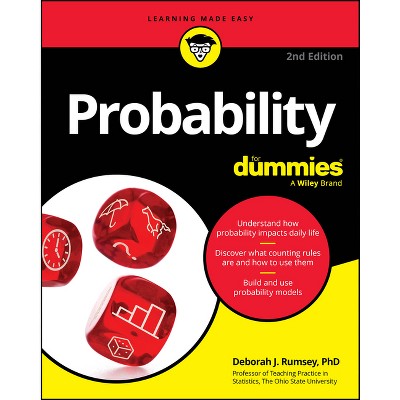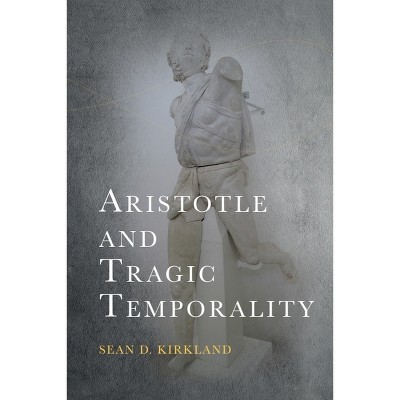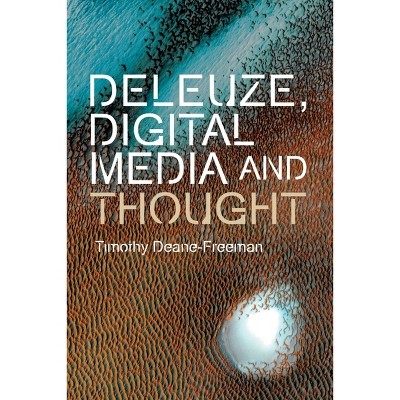The Unconscious of Thought in Leibniz, Spinoza, and Hume - (Cycles) by Gil Morejón (Paperback)

About this item
Highlights
- Three early modern philosophers - Spinoza, Leibniz and Hume - understood that minds necessarily involve ideas and patterns of thinking that are not conscious.
- About the Author: Gil Morejón teaches at Loyola University Chicago.
- 216 Pages
- Philosophy, Metaphysics
- Series Name: Cycles
Description
About the Book
The works of Leibniz, Spinoza and Hume show that thought is not, as such, a matter of consciousness. Gil Morejon explores the significance of this insight for their conceptions of freedom and ethics.Book Synopsis
Three early modern philosophers - Spinoza, Leibniz and Hume - understood that minds necessarily involve ideas and patterns of thinking that are not conscious. Morejon shows that in this way they sharply distinguish themselves from other major early modern thinkers whose conceptions of the mind tended to identify thinking with consciousness, such as Descartes, Malebranche and Locke. This conception of the thinking mind as conscious remains popular even today. By contrast, Leibniz, Spinoza and Hume argue instead that thought is not, as such, a matter of consciousness.
Morejon explores the significance of this insight for their conceptions of freedom and ethics. By systematically analyzing the major writings of these three thinkers and placing them in the context of the history of Western philosophy, he shows that together they provide us with a metaphysics of ideas that is uniquely helpful for thinking through important problems in contemporary political theory. In particular, it allows us to understand how it is possible for people to act against their own interests and in spite of their consciously knowing better.
Readers will gain a sophisticated understanding of what Leibniz, Spinoza and Hume thought about the metaphysics of ideas, the nature of the human mind and the limits of individual freedom.
From the Back Cover
These three early modern philosophers understood that minds necessarily involve ideas and patterns of thinking that are not conscious. Gil Morejón shows that in this way they sharply distinguish themselves from other major early modern thinkers whose conceptions of the mind tended to identify thinking with consciousness, such as Descartes, Malebranche and Locke. This understanding of the thinking mind as conscious remains popular even today. By contrast, Leibniz, Spinoza and Hume argue instead that thought is not, as such, a matter of consciousness. Morejón explores the significance of this insight for their conceptions of freedom and ethics. By systematically and creatively analysing the major writings of these three thinkers and placing them in the context of the history of Western philosophy, he shows that together they provide us with a metaphysics of ideas that is uniquely helpful for thinking through important problems in contemporary political theory and philosophy of mind. In particular, it allows us to understand how it is possible for people to act against their own interests and in spite of their consciously knowing better. Gil Morejón currently teaches at DePaul University and Loyola University Chicago. He is co-editor and co-translator of Alexandre Matheron's Politics, Ontology and Knowledge in Spinoza with Filippo Del Lucchese and David Maruzzella, and is currently translating François Zourabichvili, Spinoza's Paradoxical Conservatism, both with Edinburgh University Press.Review Quotes
An essential contribution for anyone who wishes to know more about the history of the unconscious. Morejón's greatest merit lies in clearly identifying structural similarities regarding the unconscious in thinkers who differ in terminology, background, and philosophical approach. The book, via an original and promising approach, thus casts new light on a little-studied epoch in the history of the unconscious.--Alessandro Nannini, University of Bucharest "Acta Comeniana"
About the Author
Gil Morejón teaches at Loyola University Chicago. His research focuses on early modern metaphysics and political theory. He is the author of The Unconscious of Thought in Leibniz, Spinoza and Hume (Edinburgh University Press, 2022) and co-edited and co-translated Alexandre Matheron's Politics, Ontology and Knowledge in Spinoza (Edinburgh University Press, 2020)











